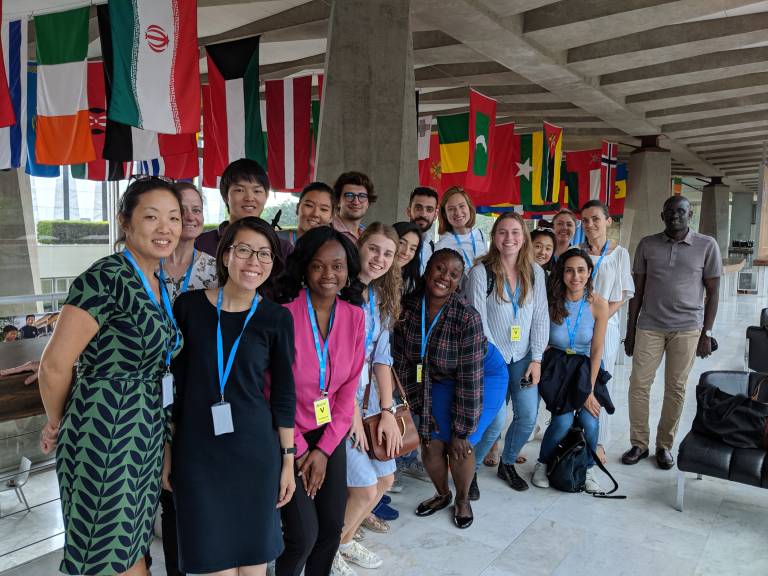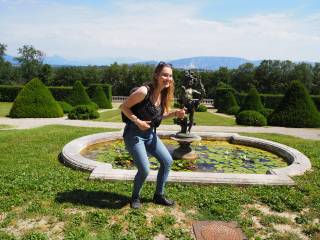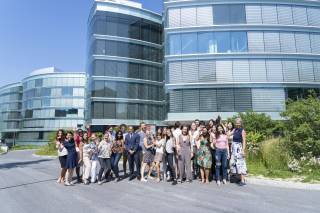Hanna received the Global Experience Bursary and took part in a International Affairs summer programme in Geneva.

It was one of those hot summer days of which we’ve had too many this summer. As I stepped out of the plane, a blanket of warm air seemed to hug me tightly. I felt the sweat dripping from the back of my neck. I started making my way to my accommodation with one suitcase and two bags, plodding through the unbearable heat. Google Maps was my guide and I prayed for my last megabytes of data to get me to where I needed to be.
So there I was. I had finally arrived in Geneva, where I would spend one month participating in a summer programme on International Affairs at the Graduate Institute. Was I ready for this? I had only finished exams three weeks earlier. Did I really want to spend my hard-earned holiday on a summer programme that wasn’t even compulsory?
Yes. I did. In retrospect, I fully enjoyed my time in Geneva and would not have wished to miss it. Undertaking a short-term global opportunity is not simply like continuing your studies during your holiday. Many summer programmes offer the option not to take the course for credit. Maybe this sounds somewhat contradictory, but I advise you to take that option. This enables you not to be fixed on essay deadlines and grades, but, rather, to distance yourself slightly from the topic studied and to put it into a wider context. It gives you a certain freedom of thought where you don’t need to say what you think the professor wants to hear, but what you think is related to the topic. At some point, for example, we ended up comparing gang culture in Nicaragua with the popular image of Robin Hood – a link that might not have been made, were it not for the relaxed, but thought-provoking atmosphere in class. The summer programme gave my brain free rein to discover, develop and deepen academic interests, without the looming pressure of an exam.And there are more benefits to participating in a summer programme. I, for example, found myself in a class with many mid-career professionals, their former jobs ranging from architectural designer to major with the US Marines. Their diverse backgrounds resulted in multifaceted discussions in class. I initially chose to participate in this programme to see whether I would like to do a masters in International Relations. As my current degree is not in the same field, the summer programme has also bridged the gap between my bachelors and masters.
On top of that, my summer programme offered magnificent excursions as an integral part of the course. I was given the opportunity to pay a visit to the European headquarters of the United Nations, the WHO and the European Centre for Nuclear Research (CERN). In this way, I was able to make the most of what international Geneva had to offer. During these excursions, we actually visited the institutions we had been talking about in class. This was exhilarating. Of course, I also photographed the Jet d’Eau, the statuesque fountain many Genevans take pride in. And, on one weekend, I crossed the Swiss-French border to visit the chateau that once belonged to François Marie Arouet, better known by his pseudonym Voltaire. He lived there from 1758 until his death to escape Paris where he had become a persona non grata. I must admit. Summer programmes can sometimes cost a tidy sum, even with the Global Experience Bursary UCL offers. But, on the other hand, it is definitely an experience worth saving for. My summer programme turned out to be very worthwhile and I would definitely recommend others to undertake a similar adventure!
By: Hanna Hodgetts




 Close
Close

